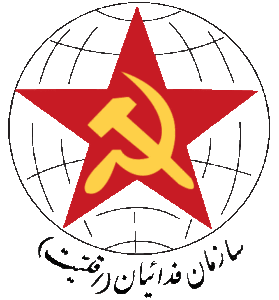Long live May 1st, the day of international solidarity for workers in the world!
 Joint declaration by 15 organizations and associations on the occasion of May 1st, International Workers’ Day
Joint declaration by 15 organizations and associations on the occasion of May 1st, International Workers’ Day
Long live May 1st, the day of international solidarity for workers in the world!
Also, this year we are celebrating “May 1st”, the day of international solidarity of the working class, while the global health crisis is overshadowing the lives of workers. The corona pandemic accompanied by the economic crisis has cornered workers, wage earners and small traders. Due to the incompetence and inefficiency of those in power, this situation has worsened more than ever before and more than anywhere else.
The lack of an effective health policy and a necessary lockdown by the government, with the cost of living for the population being borne by the government, has exacerbated the supply situation for the poorest.
Although workers and laborers rightly demand and always emphasize an immediate, general and free vaccination, the authorities and rulers deliberately try to delay the vaccination. New crises are being created in order to safeguard the interests of certain groups in government. Insisting on the production of a domestic vaccine or handing over the import of vaccines to the private sector serve the same purpose.
This in turn has plunged large parts of the population, especially the middle class, into increasing poverty and pushed an increasing number of them to the edge of the cities.
Here the situation of working and working women is the most miserable. According to the available statistics, 70 percent of working women were laid off and are already unemployed in the wake of the corona pandemic. On the question of care, the instability and the process of systematic impoverishment of wage earners, with maximum discrimination, has manifested itself most strongly in the living conditions of women. Low employment, the risk of layoffs and unemployment and isolation are the consequences of this development. Again, this is a severe blow to the Iranian working class. The situation of female domestic workers who no longer have an income is arguably the worst.
Gender discrimination as well as unemployment and bankruptcies have further increased the existing pressure on this part of the Iranian workforce.
However, the Iranian workers and their allies have waged a relentless and consistent struggle over the past year, while the balance of power has not been in their favor and the workers’ activists and other social movements have faced complex and systematic oppression.
The workers and employees in different branches of the economy, from big industry like petrochemicals, HEPCO, Azarab, Haft-Tappeh, Vahed, Stahlindustrie Khuzistan and … including teachers, pensioners and students have continued their struggle in different ways and their rejection of the brutal and neoliberal policies of the rulers expressed.
Exemplary at this point is the tireless struggle of the workers at Haft-Tappeh, which made important and fundamental questions such as privatization, corruption and embezzlement by major shareholders and main owners of Haft-Tappeh socially relevant and, alternatively, the role of workers and decision-making and administration raised by the councils.
These are struggles that are supported by their classmates around the world. We have repeatedly heard of declarations and campaigns from workers and unions around the world.
In contrast to this national and international solidarity, pro-capitalist currents are making all conceivable plans and proposals to overcome the crisis. A new trick is presented every day. But Iranian workers have learned from experience that:
-The solution to these problems and the liberation from this situation cannot be suggested by those who caused them. Workers are no longer fooled by lies and election promises that are repeated once every four years.
-The solution is also not to bet on the great world powers (no matter where they belong) and their political game. Such expectations and ties to regional and international political powers mean in practice that the wealth created by the work of the working people must be left to them and paved the way for them to develop their power and exploit the country’s resources. In addition, foreign influence on important economic, political and strategic decisions is increased
The concerns and interests of the working class have never and nowhere been the concern of the great world powers. The solution in Iran, like the class struggle around the world, can only be achieved through class solidarity among the workers themselves and the connection of their struggle with other urban and rural workers.
Iranian workers and wage earners must organize independently and not allow other social forces with their deceptively ambitious plans to protect capitalism – which contain no signs of social justice and do not provide any role for workers in shaping and running society – them exploit.
The fact is that we workers are scattered in the current situation. This is a warning that, despite all our struggle and efforts, without serious and nationwide cooperation between all workers and workers, we will not be able to take action against anti-worker policies and change the existing situation.
We have often seen how, in the absence of independent representatives and workers’ organizations, the question of the minimum wage has become a repetitive and boring joke.
While the poverty line for an Iranian family living in big cities is at least 12 million tomans (Iranian currency), even government-related organizations like the workers’ house, that speaks of 8 to 9 million tomans. However, it (the workers’ house) was unwilling to accept the estimated cost of maintaining a family of 8.2 million tomans, ignoring the complaints and outcry from the official and licensed organizations.
The lack of organizations in companies, regionally and nationally, is manifesting itself more than ever before and calls for a relentless struggle to establish them.
Without such a unified and nationwide organization, the effects of the workers’ presence and struggle are not particularly significant and the outcome of the effort becomes minimal, unrestrained and fragile.
The establishment of a cooperation council between the various sections of workers, employees, wage earners, teachers, pensioners, women, students and the unemployed is all the more necessary in the current situation.
It is not about one task alongside the others, but about the most important element of organizational work in society and among workers.
Without coordination and the transition to nationwide cooperative bodies to fight the struggle for our demands together, the force of courageous and consistent protests will be wasted and their suppression will be easier.
The effort to bring the dispersed struggles closer together and to develop their solidarity in the coming year is an urgent and vital task.
Strike, the establishment of free and independent workers’ organizations is the natural right of the Iranian workers!
The liberation of the workers will only be possible through them!
1 bus drivers’ union of Tehran and the surrounding area (Vahed)
2 Agro-industrial workers union Haft-Tappeh
3 Professional Association of Teachers Islamshahr
4 Professional Association of Teachers Gilan
5 Professional Association of Teachers Marivan – Kurdistan
6 Professional Association of Teachers Aligudarz
7 Professional Association of Teachers Kurdistan / Saqez and Zivieh
8 group of activists Bidar Zani
9 Union of Pensioners: Inside
10 Iranian Pensioners: Inside Council
11 Nationwide Iranian Pensioners Union
12 Group Pensioners Union
13 Coordination Committee for the Establishment of Workers’ Organizations
14 Trade Union Formation Follow-up Committee
15 Dialog Center for Social Security Pensioners
April 26, 2021
Translated by Activists of the Fadaian (Aghaliyat) organisation – Iran


